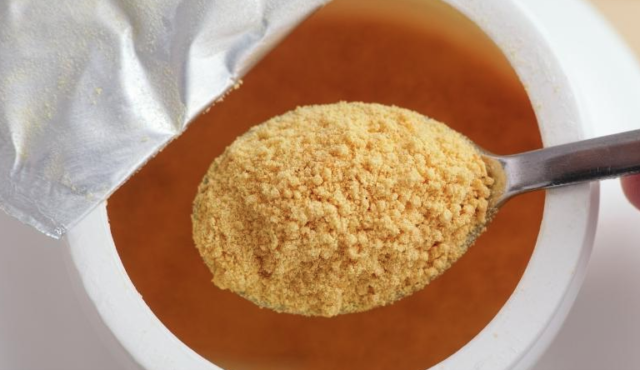Health effects of soy lecithin

Soy lecithin is a mixture of mainly phospholipids, which are an essential ingredient for the proper functioning of the human body. It also contains sterols, glycolipids, triglycerides and a small amount of fatty acids.
Soy lecithin – properties
The impact of soy lecithin on the human body has many preventive and health functions, making it reliable and extremely common in many products. What does soy lecithin do?
- It is a source of choline and a building component of cell membranes.
- Affects the improvement of memory processes.
- Reduces LDL cholesterol.
- Beneficial effect on liver cells.
- Soothes symptoms that occur during menopause.
- It has a tonic effect on the nervous system, which means it helps to relieve stress and its consequences.
- Slows down the aging process of the body by increasing the absorption and bioavailability of fat-soluble vitamins.
- Regulates the work of the circulatory system and prevents the development of atherosclerosis.
- It strengthens the cell membranes of neurons, therefore it is recommended for degenerative diseases of the nervous system, such as Parkinson’s disease, multiple sclerosis, Alzheimer’s disease.
- May improve reflexes.
- Soothes depressive conditions.
- Supports the treatment of respiratory diseases and reduces recovery time.
Soy lecithin as a dietary supplement
The use of soy lecithin as a food ingredient is quite common. If you carefully read the labels of the product, you will notice it under the symbol E322. To use lecithin as a food additive, manufacturers most often obtain it as a by-product from the production of vegetable oils.
Its massive use in various food products is due to the fact that it makes it possible to reduce production costs while improving the durability and quality of the finished product. We can find it in cakes, breads, confectionery, margarine, chocolate, mayonnaise, confectionery coatings, pasta and instant foods.
The addition of lecithin improves the consistency of the dough and makes it possible to obtain the appropriate softness of the crust in the produced bread, while maintaining a relatively long shelf life.
Is soy lecithin bad? The harmful effect of soy lecithin is associated with the production process. Not every product on the market contains lecithin that has been properly bred. Pesticides and chemicals are very often used in the cultivation of soybeans from which it is derived. To reduce the chance of side effects, read product labels carefully and choose those offered by trusted brands.
Granular soy lecithin
This ingredient is considered very beneficial for health. It has a positive effect on memory processes and the aging of nerve cells, therefore, in the form of nutritional supplements, it is often recommended for older people. Popular drugs containing, in addition to lecithin, other additional ingredients.
Soy lecithin is an essential ingredient for our body. However, the one that we consume daily in various foods, or that we supplement regularly, must come from a reliable source. Then we can take full advantage of its capabilities and not harm ourselves by supplying the system with lecithin, which does not have positive properties, but is rich in chemicals and pesticides used in the production process.
People with soy allergies should be wary of any products containing soy lecithin as they may cause an allergic reaction.
What foods contain lecithin?
Soy lecithin is naturally found in the following foods:
Liver,
Egg yolk,
Beans, Soybeans
,
Wheat germ,
Rapeseed oil,
Sunflower seeds,
Peanuts,
Fish,
Baker’s yeast,
Green vegetables,
Dairy products,
Olives,
Avocados.